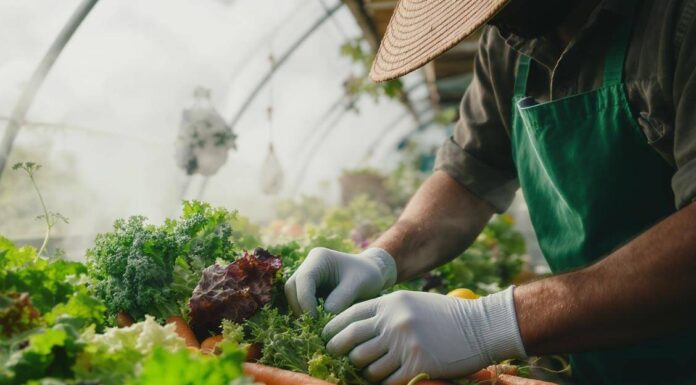Plastic in vegetables: alarming situation in Switzerland
According to a study published in 2023 by EPFL, 96% of Swiss vegetable samples tested contained traces of microplastic, confirming observations already made at the European level (https://www.epfl.ch/fr/actualites/les-microplastiques-dans-les-aliments-suisses/). The main sources are the use of agricultural films, irrigation with contaminated water, and packaging. In Switzerland, where the consumption of local vegetables is encouraged, the presence of plastic in the food chain is causing increasing concern among consumers and farmers. The federal authorities recognize that the issue of plastic in the food chain goes beyond a simple environmental issue: it directly concerns public health.
Testimonies from Romand market gardeners highlight the difficulty of avoiding plastic, even in organic farming. “Mulching tarps, essential to limit the use of herbicides, eventually fragment,” explains a Vaud producer interviewed by RTS (https://www.rts.ch/info/suisse/13898285-les-microplastiques-dans-les-legumes-suisses.html). This accentuates the dispersion of microplastics in the soil, and then in the vegetables. Large distribution chains, for their part, continue to use plastic packaging massively, despite promises of reduction.
The impact on health is still difficult to quantify, but preliminary studies already link chronic exposure to microplastics to digestive disorders, endocrine disruptions, and even an increased risk of certain non-communicable diseases (https://www.federalfood.ch/rapport-microplastiques-2023). Demands for transparency and traceability are intensifying. Plastic is now a major economic, health and political issue for the Swiss food sector.
Reducing plastic in the food chain: technical challenges and current limitations
Alternatives to plastic in agriculture and vegetable distribution are not lacking, but they pose new challenges. In Switzerland, some producers are experimenting with biodegradable mulches or cultivation systems without plastic cover. However, these solutions are more expensive and less accessible for small farms. The food packaging market is evolving, under pressure from better-informed consumers, towards compostable or recycled materials – but these innovations are not always free of defects, particularly in terms of real biodegradability.
Plastic, food and diseases: what proven links?
The Federal Office for Food Safety and Veterinary Affairs (OSAV) recently published a report highlighting that continuous exposure to plastic through the food chain could promote the onset of inflammatory or metabolic diseases (https://www.blv.admin.ch/blv/fr/home/lebensmittel-und-ernaehrung/lebensmittelsicherheit/chemische-risiken/microplastic.html). Microplastics act as vectors for toxic substances and endocrine disruptors. Swiss scientists recommend intensifying the control of residues in plant products and encouraging research on long-term impacts. For now, Swiss regulations on plastic in the food chain are less strict than in some Nordic countries, which fuels public debate.
Swiss solutions and prospects for limiting plastic in vegetables
In the face of the prevalence of plastic, several initiatives are emerging in Switzerland. Organic cooperatives are testing zero-plastic logistics chains and favoring bulk sales. Some cantons subsidize the purchase of plastic-free agricultural equipment, while the Confederation supports research on sustainable and local alternatives. Consumers, for their part, can favor farmers’ markets, refuse unnecessary packaging, and question the traceability of products. The transition to plastic-free agriculture requires public investments, but also a change in mentalities and consumption habits. Switzerland, by relying on innovation and consultation between actors, can become a European model for reducing plastic in plant-based food.



